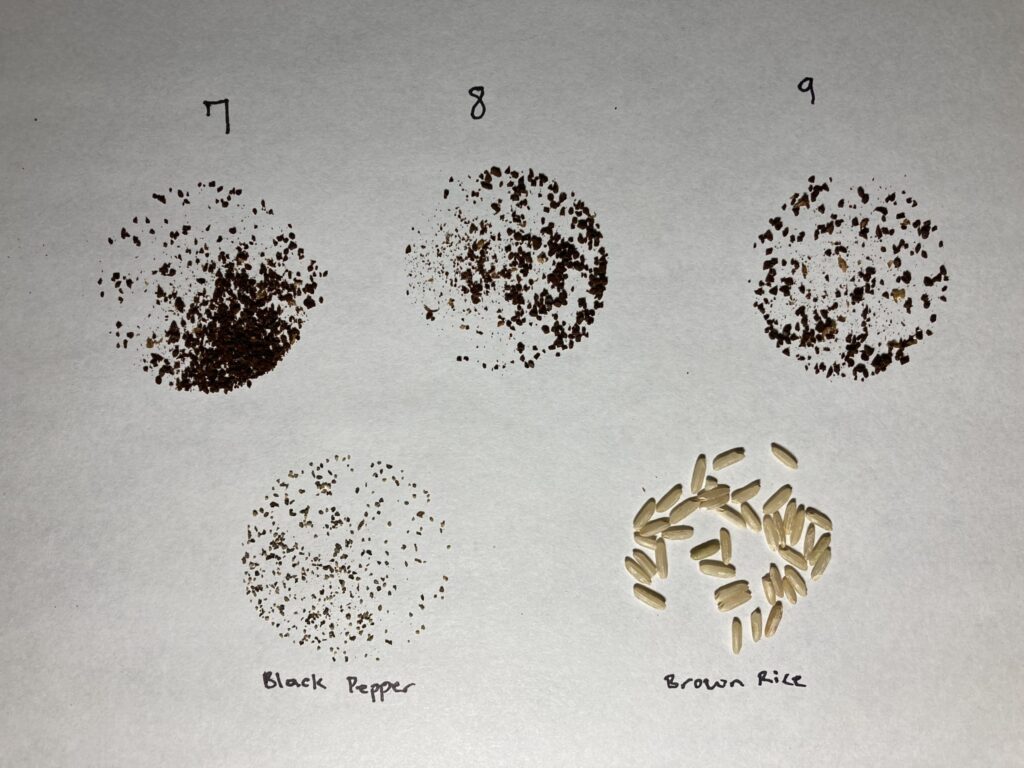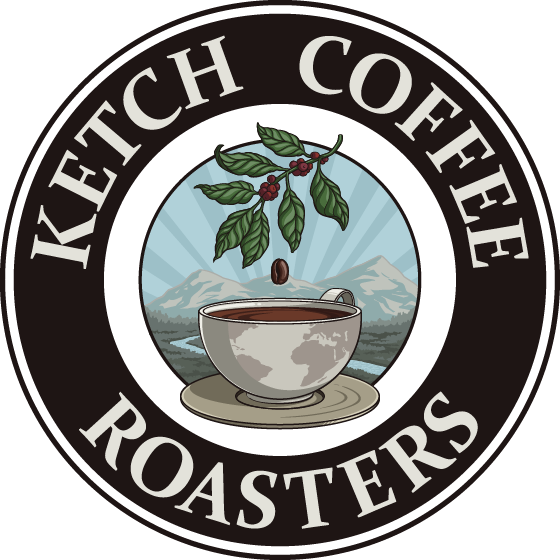Since we have a number of customers who use reusable K-Cups to brew coffee, we thought we would do some testing and evaluation of them so that we could make meaningful recommendations regarding grind size and the amount of coffee (i.e., dose) to use in them.
Equipment Used
For our testing, we used one of the commonly available reusable K-Cups that consisted of a plastic housing or body and a fine wire mesh filter along the bottom and sides. We used our commercial Ditting 804 Lab Sweet grinder that has grind settings that range from 1 on the finest setting to 12 on the coarsest setting. We used a medium roasted coffee.
Recommended Dose
We found that a dose of 14 grams was as much as we could use in our reusable K-Cup and gets desired results. If you prefer dark roasted coffee, you may have to lower the dose to 13 grams as the volume of coffee increases as it is roasted darker, which is another way of saying that the same weight of coffee as a dark roast takes up more space than a lighter roasted coffee. This is what makes volumetric recommendations difficult. We found that 14 grams of the medium roasted coffee we used corresponded to just a little over 3 level tablespoons. We found that 14 grams of a dark roasted coffee corresponded to 3 and 3/4 level tablespoons.
We found that putting more than 14 grams of coffee tended to cause the reusable K-Cup to overflow. We suspect this is happening for the following reasons. First, dry coffee in the reusable K-Cup expands when brew water is introduced. If you fill the cup up too much, the expanding coffee is prone to push open the cap of the reusable K-Cup and allow water to overflow out the top of the reusable K-Cup. Second, grinding too fine will restrict the water flow of reusable K-Cups and cause it to overflow out the top. Third, brewing very fresh coffee can also result in K-Cups overflowing due to rapid expansion of the coffee grounds. Within the first 2-3 days after coffee is roasted, it releases the bulk of the CO2 that is created during the roasting process. If you ever brew coffee within the first couples days after it was roasted with some manual brewing method such as a pour over or French Press, you will observe the coffee bubbling and dramatically expanding to form a dome. This is called “the bloom” and happens due to the sudden release of CO2 in the coffee grounds. This dramatic expansion is more than enough to force open the lid to a reusable K-Cup during brewing. To learn more about this: https://ketchcoffee.com/can-coffee-be-too-fresh/.
Recommended Grind Size
While grind size is often hard to communicate, we have found that a medium to medium-coarse grind size to yield better results with reusable K-Cups. On our Ditting grinder with a grind size range of 1-12, we have found the best results in the 7-9 range. This is the grind size range we commonly use to brew filter coffee. Our preference was a grind setting of 8, but we would encourage you to experiment with a range of grind settings as it will change the sweetness, acidity, and body of the coffee. We found that finer grind sizes were prone to restricting the water flower and overflowing, and were much harder to clean out of the reusable K-cup. In the below image, you will see grind settings 7, 8, and 9 side by side. We included samples of store-bought ground black pepper and long-grain brown rice for references.

Recommended Roast Level
The most forgiving roast level to brew regardless of brewing method is a medium roast. K-Cups machines are no exception. This is not to say that you can’t brew lighter or darker roasts well with K-Cups. You can, which is why we offer them. You just have to be prepared to experiment with both grind size, dose, and water temperature if your brewer allows. If you purchase pre-ground coffee, you eliminate one variable you have to work with.
Troubleshooting Tips
Water quality makes a huge difference in the flavors extracted. See https://ketchcoffee.com/what-are-steps-i-can-take-to-get-the-best-cup-of-coffee/ for more information.
If the coffee tastes over extracted and bitter (most common with dark roasts), try 1) increasing the amount of coffee if possible, 2) increasing the grind size, and 3) lowering the water temperature if your brewer allows.
If the coffee tastes under extracted and sour (most common with lighter roasts), try 1) reducing the amount of coffee, 2) try grinding a little finer, and 3) increasing the water temperature if your brewer allows.
Last, but certainly not least, is the quality of the coffee being used. The coffee in your cup will never be any better than the quality of the roasted coffee you are brewing. Like any other food item, you can extract the potential of the coffee you use, but you can’t exceed it.
Limitations of K-Cups with Wire Mesh Filters
If you are not a fan of sediment or fine coffee particles in your coffee from say a French Press, you will not be a fan of the coffee from reusable K-Cups. They produce a coffee with a lot of fine sediment. Professionally manufactured K-Cups, like the ones we offer, differ in that they have a paper filter in the bottom the brewed coffee passes through resulting in a much cleaner cup.
The reusable K-Cups we tested had wire mesh filters on both the side and bottoms. The problem with having wire mesh filters along the sides of the reusable K-cups is that it allows water to bypass at least some of the ground coffee. In other words, the water does not flow through all the ground coffee evenly and out the bottom filter. This can result in an uneven extraction and less than optimal flavors.
While reusable K-Cups are not the best method for brewing coffee, at the end of the day, coffee is about personal preferences and acceptable tradeoffs regarding quality, convenience, and the cost of brewing equipment. We realize this. As such, our goal is to help you make the best possible coffee with the equipment you have.
If you have questions about other easy to use and lower costs brewing options we would recommend, please contact us at info@ketchcoffee.com.
